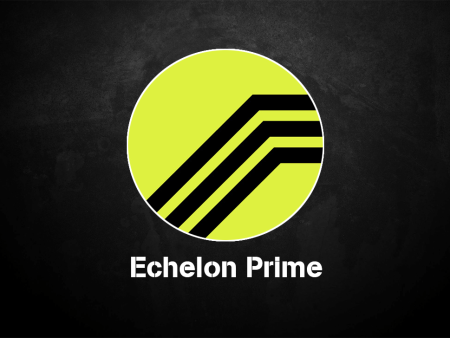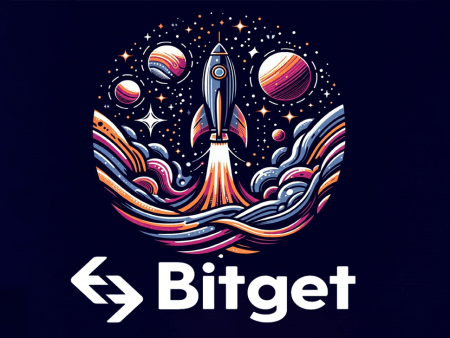Rocket Pool is a decentralized Ethereum staking protocol that aims to optimize the Ethereum staking process and allows users to stake as little as 0.01 ETH. Rocket Pool lowers the barrier to entry compared to the usual 32 ETH threshold.
In this article, AZCoin will help you understand what Rocket Pool is, including how it solves the limitations of Ethereum staking and its working mechanism.
What is Rocket Pool?
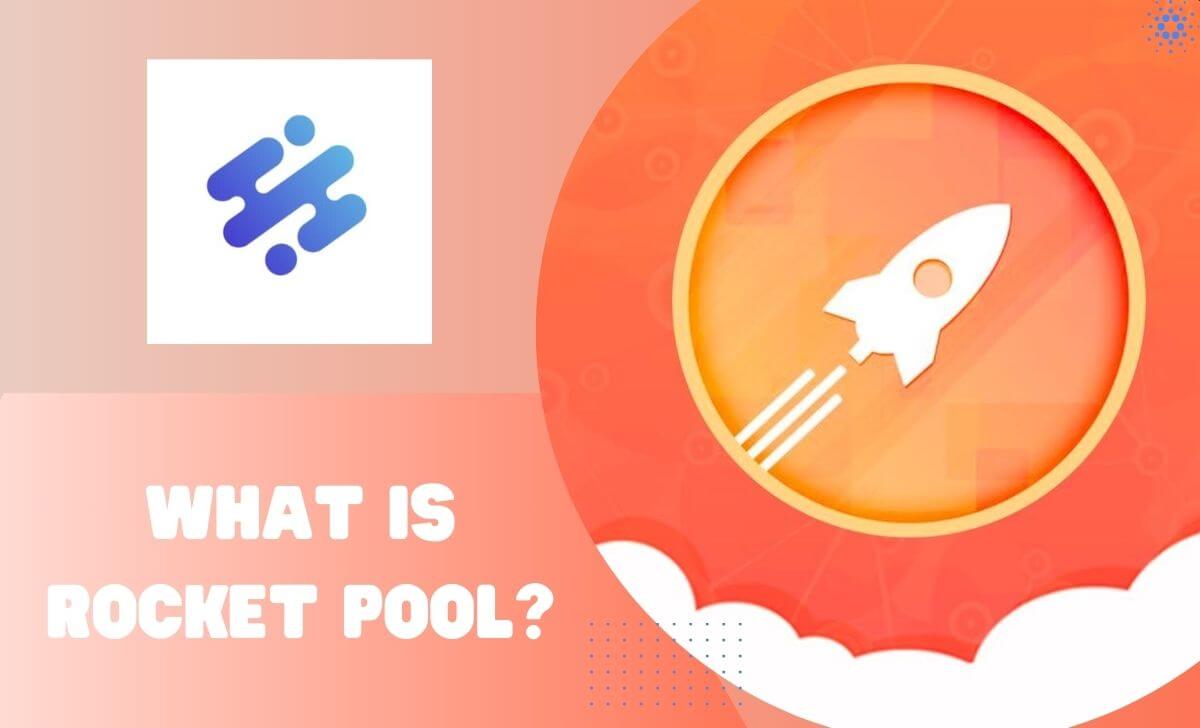
Rocket Pool is a decentralized staking protocol for Ethereum designed to work seamlessly with the Ethereum Beacon chain. It is also a project in the Liquid Staking Derivatives (LSDs) segment along with other projects such as Lido Finance and Ankr Protocol with purposes:
- Provides a network of decentralized nodes to perform Proof of Stake validation services for the Ethereum network.
- Allows users with no minimum ether to become validators – or the technical skills required to run a node to participate in staking and earn rewards.
- Allows users and businesses to run validating nodes for ETH 2.0 with just 16 ETH to earn rewards.
- Provide any third-party business with seamless staking services for people.
Rocket Pool Products & Revenue
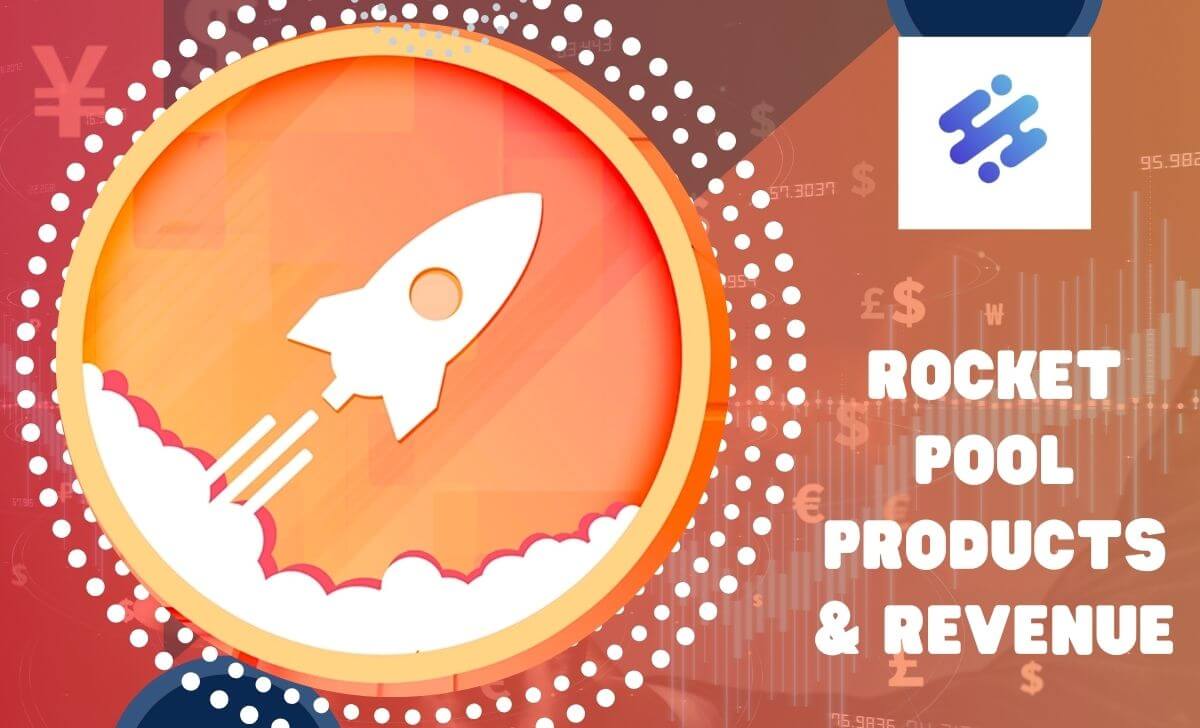
Rocket Pool Products
rETH Tokenized Liquid Staking
Users who stake ETH (at least 0.01 ETH) into Rocket Pool will receive rETH in return. rETH will once again be used in DeFi and rewards will accumulate over time. rETH can be converted back to ETH at any time as long as the pool has enough ETH for the user to trade.
This product is suitable for individuals or users of businesses integrating APIs.
Node Staking
Node Operators are required to stake a minimum of 16 ETH per validator (running a regular node requires 32 ETH to start), at which point the remaining 16 ETH is given to the Validator (this ETH comes from individual users who staked ETH into the pool).
For providing services, validator nodes receive a commission derived from deposits to the network, thus they simultaneously earn additional income and interest in ETH.
In addition to ETH, node operators can choose to stake RPL tokens as collateral in case of network validation penalties. Those who choose to stake additional RPL will be rewarded more based on the amount of RPL tokens pledged.
KNIFE
Rocket Pool currently manages two DAOs, Protocol DAO and Oracle Node DAO. Protocol DAO will be responsible for protocol management, such as deciding the inflation rate of RPL tokens, reward mechanism, staking mechanism… Protocol DAO will be operated by Rocket Pool and revolve around RPL tokens.
Meanwhile, Oracle DAO will enable on-chain network governance by members running nodes in the community, increasing the decentralization of the protocol. Oracle Nodes will be rewarded with 15% of the annual RPL Token inflation.
Rocket Pool Revenue
Rocket Pool will charge commissions and deposit fees on rewards paid to Node Operators and Stakers. The exact fee structure will change over time and is determined by Rocket Pool. Currently the Deposit Fee is 0.05%.
Rocket Pool Highlights
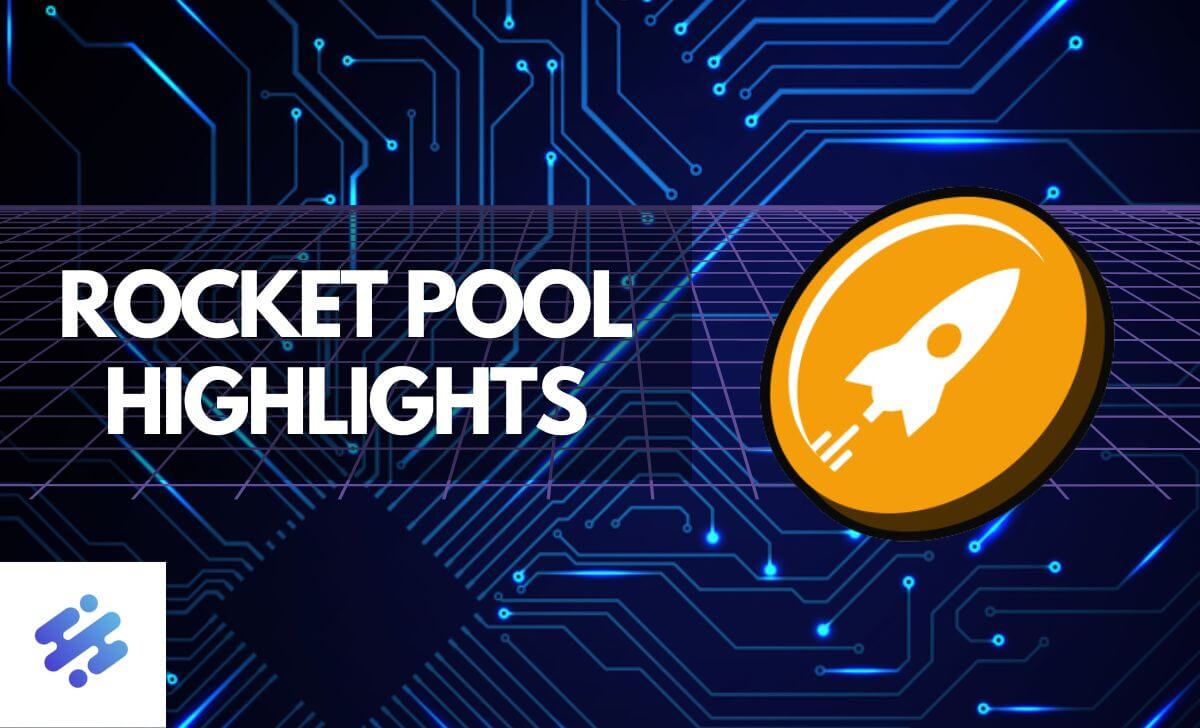
Web3 has many parties providing professional Staking services (Staking As a Service – SaaS). These SaaS support many parties such as organizations, hedge funds, and individual investors…
Rocket Pool was created to serve all of the above subjects. With the need for Staking, ETH locked in Rocket Pool will be used again instead of being locked in liquidity as usual. Rocket Pool allows investors to build their own infrastructure to run nodes with a jump of 16 ETH for a node instead of requiring a minimum of 32 ETH.
There are 2 groups that benefit from the way Rocket Pool works:
- Stakers – are individuals or corporate users. They deposit ETH, immediately receive rETH tokens. Users can now hold, trade or sell it and do not need to lock it in Rocket Pool to receive staking rewards over time.
- Node Operator – maintains the server infrastructure in the Rocket Pool network by orchestrating intelligent node software to coordinate network activity. To be assigned a deposit, node operators must stake their ETH in multiples of 16 ETH.
Each of these 16 ETH deposits creates a validator node that matches 16 ETH from the validators. For providing the service, the validator node receives a commission derived from the deposits to the network, thus earning additional income and interest in ETH at the same time.
Currently in the Liquid Staking segment, along with Rocket Pool, Lido Finance is leading the way.
Let’s take a look at some basic information to evaluate Rocket Pool and its biggest industry competitors through the following table:
RPL Token Key Metrics
- Token Name: Rocket Pool
- Ticker: RPL
- Blockchain: Ethereum
- Token Standard: ERC-20
- Token Contract: 0xD33526068D116cE69F19A9ee46F0bd304F21A51f
- Token Type: Utility
- Total Supply: 30,000,000 RPL
- Circulating Supply: 19,113,413 RPL
RPL Token Use Cases
RPL is Rocket Pool’s token used for the following purposes:
- Staking: If users want to provide security to the network, they can stake RPL & Node Operator can also stake RPL to earn extra commission.
- Rewards: Rocket Pool will use RPL Tokens to reward Node Operators and members of Oracle DAO and Protocol DAO.
Rocket Pool DAO also allows RPL stakers to participate in the DAO to govern smart contract upgrades or minor changes in the system.
RPL tokens inflate by 5% annually (i.e. 75,000 RPL Tokens will be created each month). This inflation will be used to reward the above use cases.
RPL Token Allocation
RPL is allocated in the following proportions:
- Team: 15%
- Pre-sale: 54%
- ICO: 31%
Where to buy RPL Token?
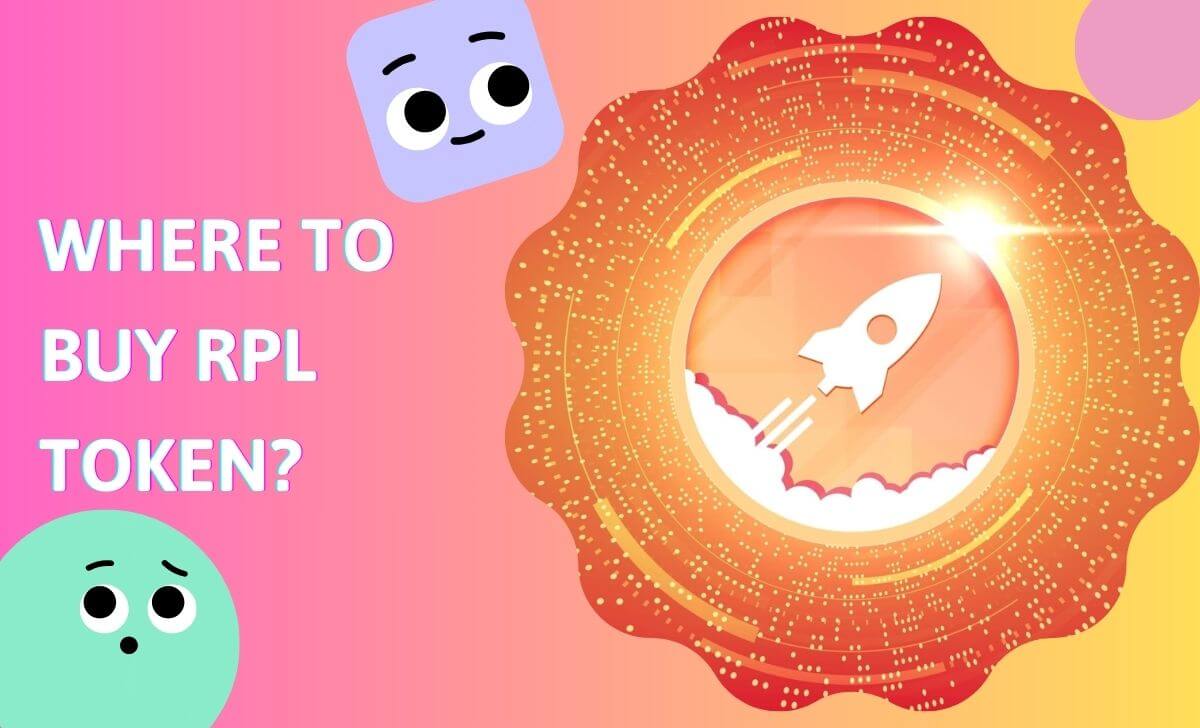
Users can purchase RPL Token through the following platforms:
- Centralized Exchanges (CEX): Binance, BingX, Bitget, MEXC Global
- Decentralized Exchange (DEX): UniSwap v3 – The most popular DEX, where you can trade RPL directly without intermediaries.
Trusted RPL Token Storage Wallet
Because RPL is an ERC-20 standard token, users can store it in all wallets that support the Ethereum network, such as Coin98 Super App, Metamask, Trust Wallet,…
To view comprehensive reviews for each cryptocurrency exchange and wallet for easier bitcoin or crypto trading, please visit the best crypto exchanges 2024.
Project Team
- David Rugendyke – Founder & CTO: David has 18 years of experience as a Senior Developer with a Computer Science background. He started Rocket Pool in late 2016.
- Darren Langley – General Manager: Darren is the administrator and advisor to all personnel within Rocket Pool.
- Maverick (Nick Ashley) – Marketing & Community Manager: Nick has many years of experience as a blockchain consultant.
Investors & Partners
Investors and funding rounds
Rocket Pool has raised a total of 2 rounds of capital: Pre-sale, ICO with the participation of Consensus Capital, a fund investing in new technology in blockchain and KR1, a European fund specializing in investing in digital assets in the market and some other prominent investors and VCs such as Kryptonite1 and Milliwalt.
Partner
Oracle DAO members are projects, channels, and infrastructure that help support Rocket Pool on issues like running nodes, advertising, and operations…
Summary
Thanks to its decentralized, efficient, and accessible advantages, Rocket Pool is playing a significant role in fostering the growth of the Ethereum ecosystem.
As per the indemnity clause, AZCoin is not liable for any financial decisions made by you. We extend our best wishes and hope that you achieve success in this lucrative market.

I am Tony Vu, living in California, USA. I am currently the co-founder of AZCoin company, with many years of experience in the cryptocurrency market, I hope to bring you useful information and knowledge about virtual currency investment.
Email: [email protected]

